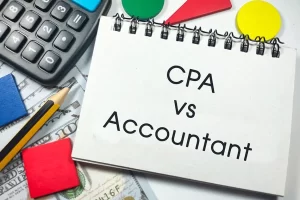Is a CPA Better Than an Accountant?
Understanding the Difference
What is a CPA?
A Certified Public Accountant (CPA) is a professional designation given to accountants who have met specific educational and experiential requirements, as well as passed the Uniform CPA Examination. CPAs are licensed to provide a wide range of accounting services to the public. They have a deep understanding of financial reporting, taxation, auditing, and other complex accounting principles.
What is an Accountant?
On the other hand, the term “accountant” is more general and refers to individuals who work in the field of accounting. While some accountants may hold certifications or degrees, it is not a requirement to be called an accountant. Accountants perform various tasks such as bookkeeping, preparing financial statements, analyzing data, and providing financial advice to individuals or organizations.
Skills and Expertise
CPA Expertise
One of the key advantages of hiring a CPA is their extensive knowledge and expertise in accounting and finance. CPAs have gone through rigorous education and training, which includes completing a bachelor’s degree in accounting or a related field, obtaining relevant work experience, and passing the CPA exam. This comprehensive background equips CPAs with a deep understanding of complex accounting principles and allows them to handle intricate financial matters.

Accountant Skills
Accountants, while not required to hold a CPA designation, still possess valuable skills in accounting and financial management. They often have a bachelor’s degree in accounting or a related field, and some may have obtained additional certifications to enhance their expertise. Accountants are proficient in basic accounting tasks such as bookkeeping, preparing financial reports, and analyzing financial data. They play a vital role in ensuring accurate record-keeping and compliance with financial regulations.
Scope of Services
CPA Services
CPAs have a broader scope of services compared to accountants. They can provide services such as tax planning and preparation, financial statement audits, forensic accounting, business valuation, and management consulting. CPAs can also represent clients before tax authorities and assist with complex financial transactions. Their expertise and professional standing allow them to offer specialized services that go beyond the traditional roles of an accountant.
Accounting Services
Accountants primarily focus on day-to-day accounting functions, including recording transactions, reconciling accounts, preparing financial statements, and ensuring compliance with financial regulations. They may also assist with budgeting, forecasting, and providing financial advice. While their services are essential for maintaining accurate financial records, accountants typically have a narrower scope of services compared to CPAs.
Regulatory Oversight and Compliance
CPA Regulatory Oversight
CPAs are subject to strict regulatory oversight by state boards of accountancy. To maintain their CPA license, they must fulfill continuing professional education (CPE) requirements and adhere to a code of professional conduct. This regulatory oversight ensures that CPAs stay updated on the latest accounting standards, regulations, and ethical practices, providing clients with a higher level of assurance and quality in their work. For a sydney tax agent see here.

Accountant Compliance
While accountants are not subject to the same level of regulatory oversight as CPAs, they are still expected to comply with generally accepted accounting principles (GAAP) and adhere to ethical guidelines. Many professional accounting organizations offer certifications and continuing education opportunities for accountants to enhance their knowledge and demonstrate their commitment to maintaining professional standards.
Choosing the Right Professional
When deciding whether to hire a CPA or an accountant, it’s important to consider the specific needs of your situation. If you require complex financial services such as tax planning, auditing, or specialized consulting, a CPA may be the better choice. Their extensive training, expertise, and regulatory oversight provide a higher level of confidence in their abilities.
On the other hand, if you primarily need basic accounting services such as bookkeeping or preparing financial statements, an accountant may be sufficient for your needs. Accountants can help you maintain accurate financial records and provide valuable insights into your financial situation.
In some cases, a combination of both professionals may be ideal. Hiring an accountant for day-to-day accounting tasks and engaging a CPA for specific projects or complex financial matters can provide a well-rounded financial management approach.
The Bottom Line
Ultimately, whether a CPA is better than an accountant depends on the specific requirements of your situation. CPAs bring in-depth knowledge, expertise, and a broader range of services to the table, making them a preferred choice for complex financial matters. However, accountants still play a crucial role in managing day-to-day accounting tasks and can provide valuable insights for individuals and businesses.
When making a decision, it’s essential to evaluate your needs, consider the complexity of your financial situation, and weigh the advantages of each professional. Whether you choose a CPA or an accountant, both can contribute significantly to your financial success with their unique skills and expertise.


